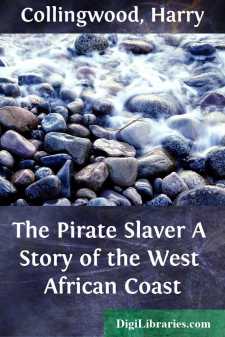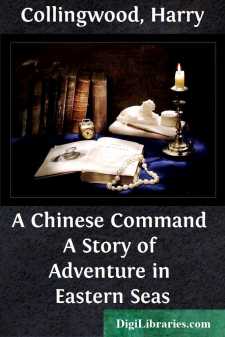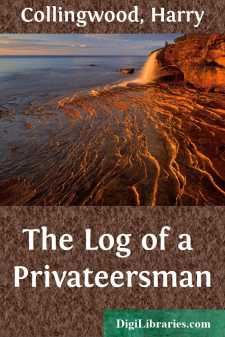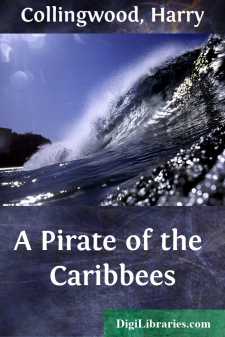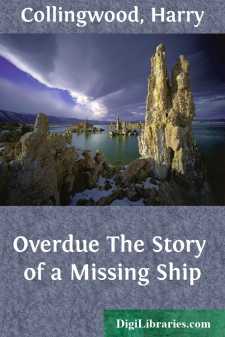Categories
- Antiques & Collectibles 13
- Architecture 36
- Art 48
- Bibles 22
- Biography & Autobiography 813
- Body, Mind & Spirit 142
- Business & Economics 28
- Children's Books 17
- Children's Fiction 14
- Computers 4
- Cooking 94
- Crafts & Hobbies 4
- Drama 346
- Education 46
- Family & Relationships 57
- Fiction 11829
- Games 19
- Gardening 17
- Health & Fitness 34
- History 1377
- House & Home 1
- Humor 147
- Juvenile Fiction 1873
- Juvenile Nonfiction 202
- Language Arts & Disciplines 88
- Law 16
- Literary Collections 686
- Literary Criticism 179
- Mathematics 13
- Medical 41
- Music 40
- Nature 179
- Non-Classifiable 1768
- Performing Arts 7
- Periodicals 1453
- Philosophy 64
- Photography 2
- Poetry 896
- Political Science 203
- Psychology 42
- Reference 154
- Religion 513
- Science 126
- Self-Help 84
- Social Science 81
- Sports & Recreation 34
- Study Aids 3
- Technology & Engineering 59
- Transportation 23
- Travel 463
- True Crime 29
The Pirate Slaver A Story of the West African Coast
Categories:
Description:
Excerpt
The Congo River.
“Land ho! broad on the port bow!”
The cry arose from the look-out on the forecastle of her Britannic Majesty’s 18-gun brig Barracouta, on a certain morning near the middle of the month of November, 1840; the vessel then being situated in about latitude 6 degrees 5 minutes south and about 120 east longitude. She was heading to the eastward, close-hauled on the port tack, under every rag that her crew could spread to the light and almost imperceptible draught of warm, damp air that came creeping out from the northward. So light was the breeze that it scarcely wrinkled the glassy smoothness of the long undulations upon which the brig rocked and swayed heavily while her lofty trucks described wide arcs across the paling sky overhead, from which the stars were vanishing one after another before the advance of the pallid dawn. And at every lee roll her canvas flapped with a rattle as of a volley of musketry to the masts, sending down a smart shower from the dew-saturated cloths upon the deck, to fill again with the report of a nine-pounder and a great slatting of sheets and blocks as the ship recovered herself and rolled to windward.
The brig was just two months out from England, from whence she had been dispatched to the West African coast to form a portion of the slave-squadron and to relieve the old Garnet, which, from her phenomenal lack of speed, had proved utterly unsuitable for the service of chasing and capturing the nimble slavers who, despite all our precautions, were still pursuing their cruel and nefarious vocation with unparalleled audacity and success. We had relieved the Garnet, and had looked in at Sierra Leone for the latest news; the result of this visit being that we were now heading in for the mouth of the Congo, which river had been strongly commended to our especial attention by the Governor of the little British colony. Our captain, Commander Henry Stopford, was by no means a communicative man, it being a theory of his that it is a mistake on the part of a chief to confide more to his officers than is absolutely necessary for the efficient and intelligent performance of their duty; hence he had not seen fit to make public the exact particulars of the information thus received. But he had of course made an exception in favour of Mr Young, our popular first luff; and as I—Henry Dugdale, senior mid of the Barracouta—happened to be something of a favourite with the latter, I learned from him, in the course of conversation, some of the circumstances that were actuating our movements. The intelligence, however, was of a very meagre character, and simply amounted to this: That large numbers of African slaves were being continually landed on the Spanish West Indian islands; that two boats with their crews had mysteriously disappeared in the Congo while engaged upon a search of that river for slavers; and that a small felucca named the Wasp—a tender to the British ship-sloop Lapwing—had also disappeared with all hands, some three months previously, after having been seen in pursuit of a large brig that had come out of the river; these circumstances leading to the inference that the Congo was the haunt of a strong gang of daring slavers whose capture must be effected at any cost....


